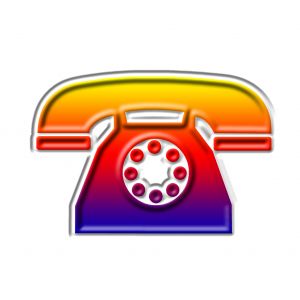July 20. 2015
 On July 10, 2015, the Federal Communications Commission (the “FCC” or “Commission”) released its long-awaited Declaratory Ruling and Order, which was prompted by nearly two dozen petitions and letters requesting clarifications under the Telephone Consumer Protection Act (the “TCPA”). In the landmark ruling, the FCC doubled down on its expansive and controversial interpretation of the TCPA’s autodialer definition, more formally known as an automatic telephone dialing system (or ATDS).
On July 10, 2015, the Federal Communications Commission (the “FCC” or “Commission”) released its long-awaited Declaratory Ruling and Order, which was prompted by nearly two dozen petitions and letters requesting clarifications under the Telephone Consumer Protection Act (the “TCPA”). In the landmark ruling, the FCC doubled down on its expansive and controversial interpretation of the TCPA’s autodialer definition, more formally known as an automatic telephone dialing system (or ATDS).
In light of the Commission’s recent ruling, what automated telemarketing technology is safe to use?
What is an autodialer?
The TCPA defines an ATDS as “equipment which has the capacity (A) to store or produce telephone numbers to be called, using a random or sequential number generator; and (B) to dial such numbers.” For nearly a decade, the FCC has expanded this statutory definition to include “predictive” dialers and other devices that dial a fixed set of numbers without a random or sequential number generator.
In its latest TCPA ruling, the FCC refused to “address the exact contours of the autodialer definition,” but nonetheless rejected the “current capacity” test adopted by many federal courts throughout the nation. Referencing one of seven Merriam-Webster definitions of capacity (“the potential or suitability for holding, storing, or accommodating”), the Commission concluded that “equipment that has the requisite ‘capacity’ is an autodialer and is therefore subject to the TCPA.”
The ruling solidifies the FCC’s expansive stance that dialing equipment generally meets the TCPA’s autodialer definition, even if it is not presently used for that purpose. The expansive regime labels practically every telemarketing device on the market as an autodialer, subject to regulation under the TCPA.
Commissioner Ajit Pai adamantly disagreed with the FCC’s interpretation of the TCPA autodialer definition, arguing by analogy that “no one would say that a one-gallon bucket has the ‘potential or suitability for holding, storing, or accommodating’ two gallons of water just because it could be modified to hold two gallons. Nor would anyone argue that Lambeau Field in Green Bay, Wisconsin, which can seat 80,000 people, has the capacity (i.e., the ‘potential or suitability’) to seat all 104,000 Green Bay residents just because it could be modified to have that much seating.”
What does not fall within the autodialer definition?
The Commission hesitantly acknowledged in the Declaratory Ruling that an outer limit to its autodialer definition does, in fact, exist. However, the FCC provided little helpful guidance for operators in this space.
Instead of offering examples of modern devices that fall outside of the autodialer definition, the Commission referenced archaic equipment such as rotary-dial phones (which entered national service in 1919) and handsets with simple speed-dial buttons. When critics observed that the Commission’s expansive interpretation of the autodialer definition seems to include devices as commonplace as the smartphones carried by two-thirds of Americans, the FCC dismissively replied that “these commenters [have not] offered any scenarios under which unwanted calls are likely to result from consumers’ typical use of smartphones.”
The Commission’s latest interpretation of the TCPA autodialer definition is broader than ever before. Accordingly, we advise that companies involved in telemarketing should take precautions whenever using automated technology to place calls or send texts to consumers, or face potential liability under the TCPA.
If you are interested in learning more about this topic or need to review your telemarketing practices, please e-mail us at info@kleinmoynihan.com, or call us at (212) 246-0900.
The material contained herein is provided for informational purposes only and is not legal advice, nor is it a substitute for obtaining legal advice from an attorney. Each situation is unique, and you should not act or rely on any information contained herein without seeking the advice of an experienced attorney.
Attorney Advertising
Related Blog Posts:
Proposed FCC Telemarketing Actions – “Most Significant Since the Do-Not-Call Registry”



